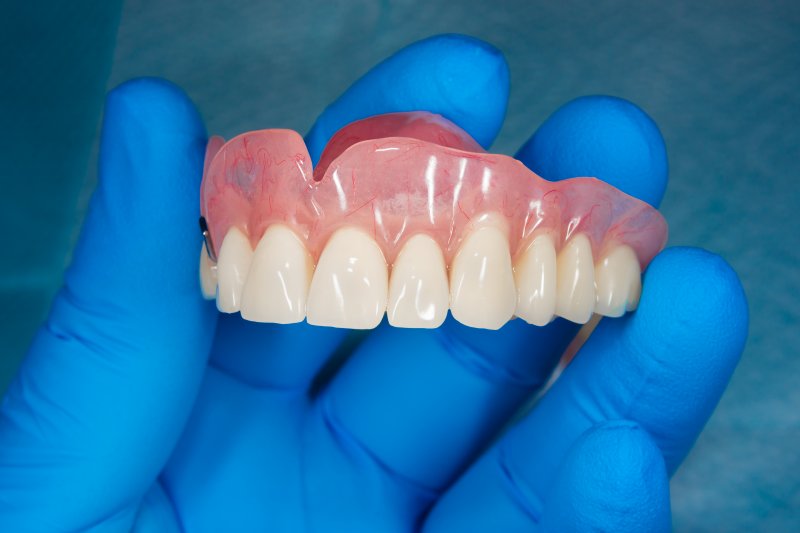
When properly fitted, dentures are extremely useful for helping you perform daily activities such as chewing and talking after you’ve lost your teeth. They can also boost your self-esteem and improve your appearance at the same time. However, over time the ridges of your gum tissue might start to shrink, and as a result your false teeth might not fit as well as they used to. Obviously, teeth that slip while you’re trying to eat are inconvenient enough on their own, but they can also lead to a number of oral health issues. Read on to learn 5 reasons why you should have ill-fitting dentures in Falmouth adjusted or replaced as soon as you can.
1. Ill-Fitting Dentures Irritate the Gums
If your dentures don’t fit properly, they’ll rub against the gum tissue, irritating it and causing inflammation. Over time, this can result in serious pain – especially if you were already suffering from a specific oral health problem such as a TMJ disorder.
2. Ill-Fitting Dentures Cause Blisters and Increases the Risk of Infection
The motion of ill-fitting dentures can also cause blisters to form on your gums, the interior surface of the jaws, and various other areas throughout the mouth. While blisters form in order to protect the soft tissues in your mouth from the unnatural rubbing of dentures, they can still be very uncomfortable in the meantime. Furthermore, blisters (along with any cuts and scrapes that form in your mouth) could potentially become infected. Needless to say, if an infection forms in your mouth, your teeth could be at risk.
3. Ill-Fitting Dentures Lead to Ear Pain and Headaches
You may not realize it, but the discomfort caused by loose-fitting dentures could also be putting a lot of pressure on your gums and the jaw. One side effect of this pressure is that you could start to experience earaches and headaches. Such discomfort will only get worse as time goes on.
4. Ill-Fitting Dentures Lead to an Uneven Bite
Eventually, your ill-fitting dentures could start to affect the alignment of your bite, and that can lead to all kinds of issues. For example, saliva might start to pool on the sides of your mouth; this can lead to the development of yeast that ultimately causes an infection.
5. Ill-Fitting Dentures Lead to Jawbone Atrophy
If your dentures continue to put the underlying dentures through unnecessary wear and tear, it could cause bone atrophy. When bone is lost in excessive amounts, the jaw won’t be able to produce new tissue to take its place.
All of the above health problems can be avoided if you’re proactive about having your dentures adjusted when you need to. Be aware of the warning signs that your false teeth are moving around too much in your mouth and get in touch with your dentist as soon as you can.
About the Author
Dr. Rob McVety knew from childhood that he wanted to use dentistry to help care for people. His education showed him the link between the oral cavity and total body health, and he embraces the chance to work in a constantly evolving field. If you have concerns about your dentures not fitting anymore, you can schedule an appointment at his practice, Casco Bay Smiles, by visiting his website or calling (207) 517-7008.
